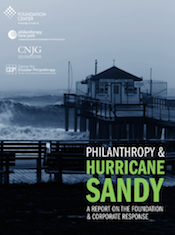Site Search
- resource provided by the Forum Network Knowledgebase.
Search Tip: Search with " " to find exact matches.
The Health and Environmental Funders Network (HEFN) and Sustainable Agriculture and Food Systems Funders (SAFSF) invite you to join an informal conversation to learn from funder peers who are practicing participatory grantmaking (PG). We’ll begin with a brief overview of PG, and how this practice can be used to center equity and justice as we shift away from extractive grantmaking practices. We’ll then hear from a few HEFN and SAFSF members who are implementing different models of PG in their grantmaking.
If you’re new to the concept of participatory grantmaking, this webinar is a great opportunity to see examples of it in action. If you’re familiar with participatory grantmaking (or working to implement these practices in your own world), this is a chance to dive deeper into others’ practices for learnings and insight. Time will be reserved in the agenda for discussions in smaller groups and, as you might expect, the call will be participatory!
Speakers:
Amanda Tello, St. Louis Environmental Justice Fund
Shavaun Evans, Food and Farm Communications Fund
Mark Muller, Regenerative Agriculture Foundation
Resources
Zoom Recording
Webinar slides
Deciding Together Shifting Power and Resources Through Participatory Grantmaking
Amanda Tello’s communal agreements
PG Learning Community Summary
This self-assessment/reflection tool is intended for foundations and funders committed to or interested in Doing Good Better. Doing Good Better is inspired by, and builds on, years of nonprofit and community advocacy, the principles of “Trust Based Philanthropy,” and numerous other resources. We hope this tool will open up the opportunity for dialogue and reflection with your board, staff and funded agencies. Your response can serve as a baseline for future measurement of your organization’s progress towards Doing Good Better, stronger philanthropic/nonprofit partnerships, and heightened community impact.
This assessment is intended as a self-reflection tool, rather than a recommendation for any specific policy within a particular funding institution. It has four sections, one for each Doing Good Better goal. For most funders, a single individual in grantmaking or senior leadership will be able to complete the full assessment; others may need additional support from other departments to respond. While filling out the assessment, we encourage you to consider how self-reporting bias may show up in your answers. Also, notice where a question challenges you and get curious about why.
To make the most of this tool, we recommend that you first review and consider the Doing Good Better goals before starting this assessment. We also encourage your board and staff to go through the goals as you reflect on your responses.
• Goal 1: Center Equity
• Goal 2: Provide Flexible Funding
• Goal 3: Provide Reliable Funding
• Goal 4: Reduce Paperwork Burden
DOWNLOAD THE SELF-ASSESSMENT TOOL
"Co-Creation" is a case study about the Connecticut Early Childhood Funder Collaborative, a project of the Connecticut Council for Philanthropy. The case study, written by Patricia Bowie, examines co-creation, an emerging systems change collaboration model which grew out of a funder-and-state partnership. This unique partnership led to the creation by executive order of a new and independent Office of Early Childhood, which was formally approved by the Connecticut State Legislature in 2013. The companion piece, "Taking on New Roles to Address 21st Century Problems," looks at co-creation from the perspective of a regional association of grantmakers.
The Connecticut Early Childhood Funder Collaborative comprises 14 funders from around the state who bring many years of experience in supporting and operating programs that serve the needs of children and families.
Foundations Facilitate Diversity, Equity, and Inclusion: Partnering with Community and Nonprofits, a new report by the OMG Center for Collaborative Learning, confirms that foundations can, in fact, facilitate diversity, equity, and inclusion (DEI) through their grantmaking processes and their partnerships with nonprofits—and identifies eight specific practices for foundations to emulate.
The report takes a deep dive into the work of nine foundations that represent a diverse cross-section of types and sizes, and offers useful lessons about how foundations can better partner with nonprofits to be more effective in their work.

Sample bylaws for Community Foundations.
This PowerPoint presentation developed by Southeastern Council of Foundations provides an excellent overview to the pros and cons of different philanthropic structures for Corporate entities, including Corporate Foundations, Corporate Giving Programs, and working through Community Foundations.
